Walking Together with Ethiopia Toward Peace and Brighter Future
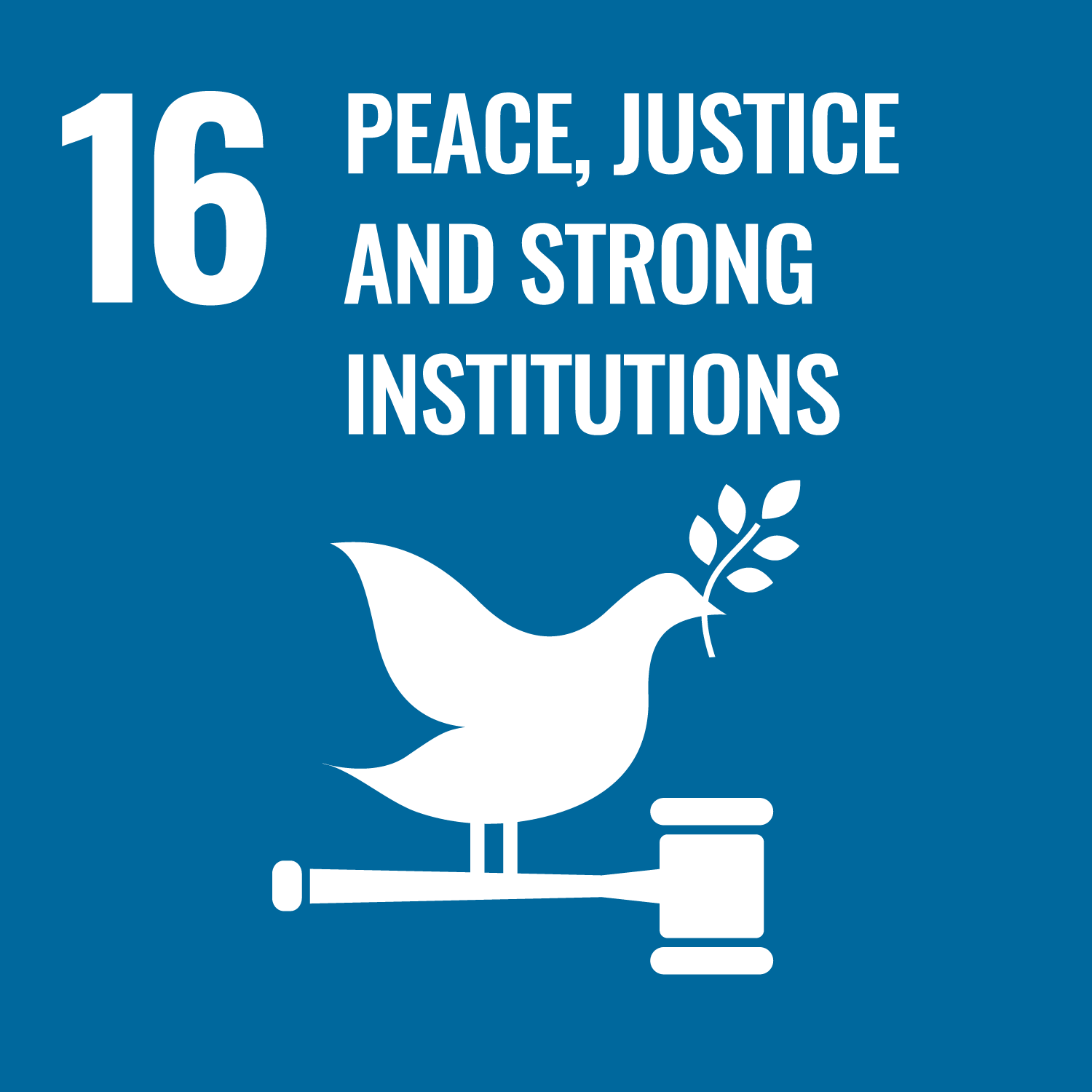
2025.08.22
-
- Ms. Megumi NAKAMURA, JICA Ethiopia Office
JICA is working together with the people of Ethiopia to support the recovery of everyday life after internal conflict through various efforts such as building of schools and water facilities. Based on over 50 years of trusted partnership, we continue our cooperation with a strong focus on dialogue and mutual understanding.
What comes to mind when you hear “Ethiopia”? I would describe it a land of diversity, where more than 80 ethnic groups coexist under different languages and religions, across climates ranging from deserts to highlands. People wear colorful traditional cloth and enjoy music and dance unique to each region.
Such richness in nature and culture cannot be defined in a single image. However, this diversity can also pose challenges to political and social stability as strong pride of different groups sometimes create tensions.
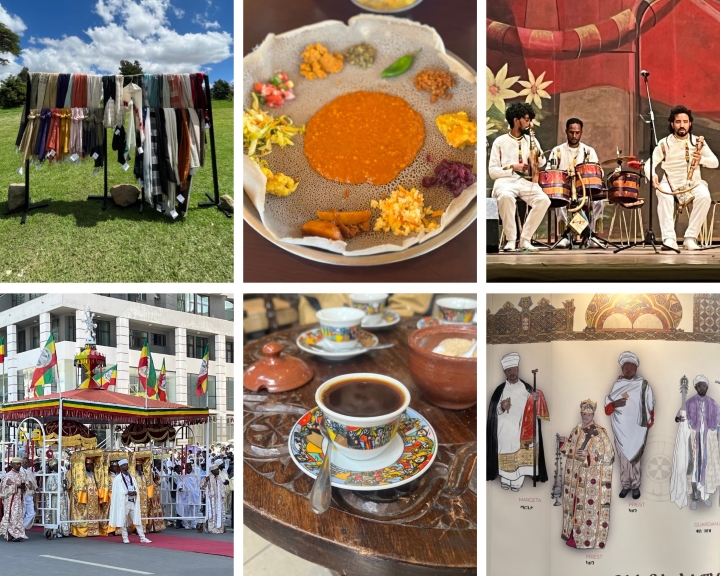
Ethiopian silk scarves (Top Left), Colorful Ethiopian cuisine (Top Center), Traditional instrumental bands (Top Right)
Parade of Ethiopian Orthodox holidays (Bottom Left), Origin of coffee (Bottom Center), Costumes of religious leaders (Bottom Right)
Since dispatch of the first volunteers in 1972, JICA has been supporting various sectors including agriculture, education, health, and infrastructure, with the principles of “People-centered cooperation” and “respecting differences and thinking together.”
Even during the COVID-19 pandemic and northern conflict, when Japanese staff had to evacuate, our collaboration continued. Together with national staff and counterparts, we explored what could be done remotely—such as online training and donating protective supplies. Such efforts, even without direct presence, were made possible by the deep trust developed through decades of partnership.
The northern conflict ended with thew peace agreement in November 2022. But its impact on the Tigray, Amhara, and Afar regions was devastating. Infrastructure such as water and electricity were destroyed, and many schools and hospitals were severely damaged. People lost their homes, and children also lost places to learn. Community ties were broken, and approximately 3.5 million people were internally displaced. Restoring farmers’ livelihoods and reintegrating former combatants remains a major challenge.
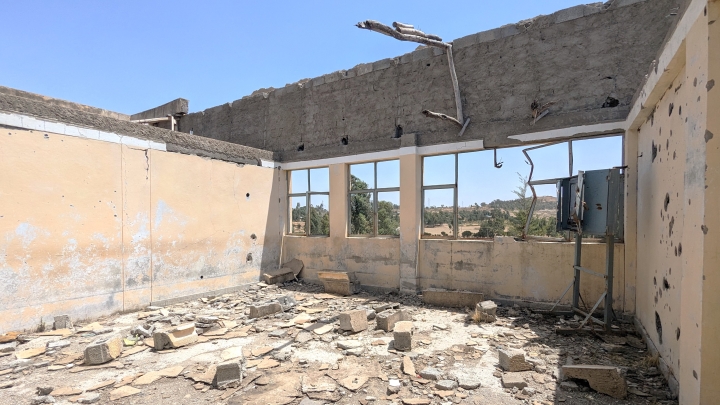
Conflict-affected school
To understand the details of the damage and local needs, JICA conducted interviews and field assessments from 2022 to 2023. In 2023, in partnership with UNICEF, we began constructing and rehabilitating schools with water facilities in Amhara and Tigray, to serve both schools and surrounding communities. In 2024, we launched the “Project for Reconstruction of Conflict-Affected Communities in the Northern Ethiopia” collaborating with local governments to restore education and livelihoods.
We also dispatch the “Aid Coordination Advisor for Reconstruction Assistance” who helps coordination among ministries, regional governments, and international organizations in alignment with national recovery plans, aiming at bridging ethnic and political differences.
We are deeply concerned about children who lost five years of education due to COVID-19 and conflict. Together with UNICEF, we are constructing schools that will benefit around 12,000 students and improve the lives of nearly 47,000 people. At the groundbreaking ceremony, I was deeply moved by the voices of the community. One resident said, “Peace is the most important thing,” and a high school student, with tears in her eyes, told us, “So many of my friends are no longer here.” They reminded me that true recovery is to restore everyday life—where children can learn without fear, and communities can speak of the future with hope.
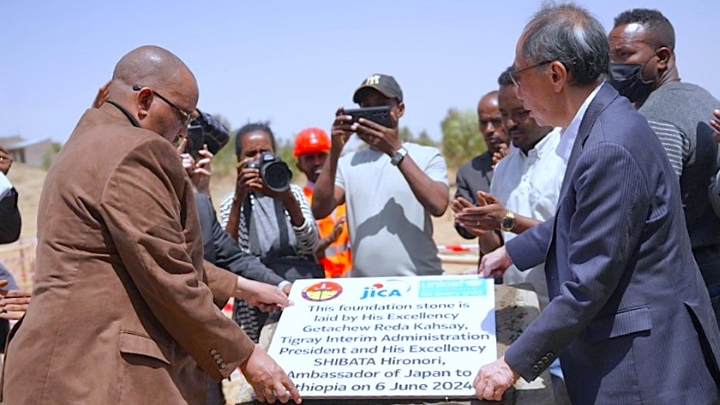
Groundbreaking ceremony for UNICEF collaboration project
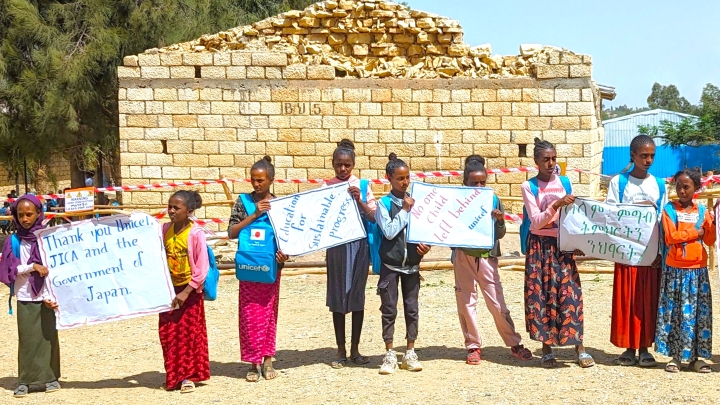
Girls with a welcome message at the ceremony
Recovery is not just about rebuilding infrastructure. It also means reconnecting broken bonds, which requires sincere and thoughtful efforts.
In February 2025, JICA invited 17 Ethiopian officials to Japan, including the State Minister of Peace and regional leaders. They learned from Japan’s post-war and disaster recovery, and more importantly, engaged in open discussions about peace. Together, they reaffirmed the importance of mutual respect and understanding as the foundation for rebuilding trust.
While walking with them near Hiroshima Peace Memorial Park, one participant said, “Being here without fear is something truly special.” That moment struck me deeply. Seeing their sincere engagement, I realized that peace is never guaranteed—it is something we must pursue and create together, as members of society.
Courtesy call on the Governor of Hiroshima Prefecture
Observation of the Atomic Bomb Dome
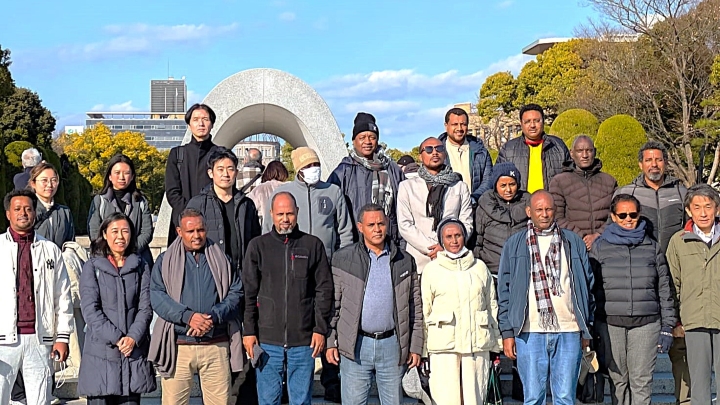
Group photo at Peace Memorial Park
Hospital in Onagawa Town damaged by the Great East Japan Earthquake
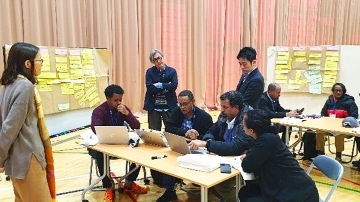
Discussion for action plan at JICA Tokyo Center
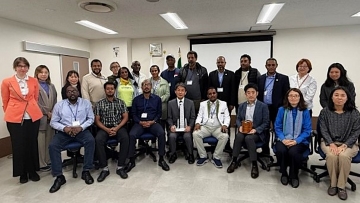
Closing ceremony
In November 2024, JICA and the Embassy of Japan in Ethiopia co-hosted an event to mark the 70th anniversary of Japan’s ODA. Partners from government, NGOs, international organizations, and educational institutions gathered to celebrate over 50 years of collaboration. Many shared heartfelt comments like, “Japan supports us from our local perspective,” and “Japan is a partner who thinks with us.” These words continue to inspire us.
The scars of conflict run deep, and recovery takes time. That’s why we believe long-term and sincere cooperation is essential. JICA will keep walking alongside the people of Ethiopia, supporting a future where diversity is embraced and communities live together in peace and mutual respect.

Group photo at the ODA 70th anniversary event
scroll